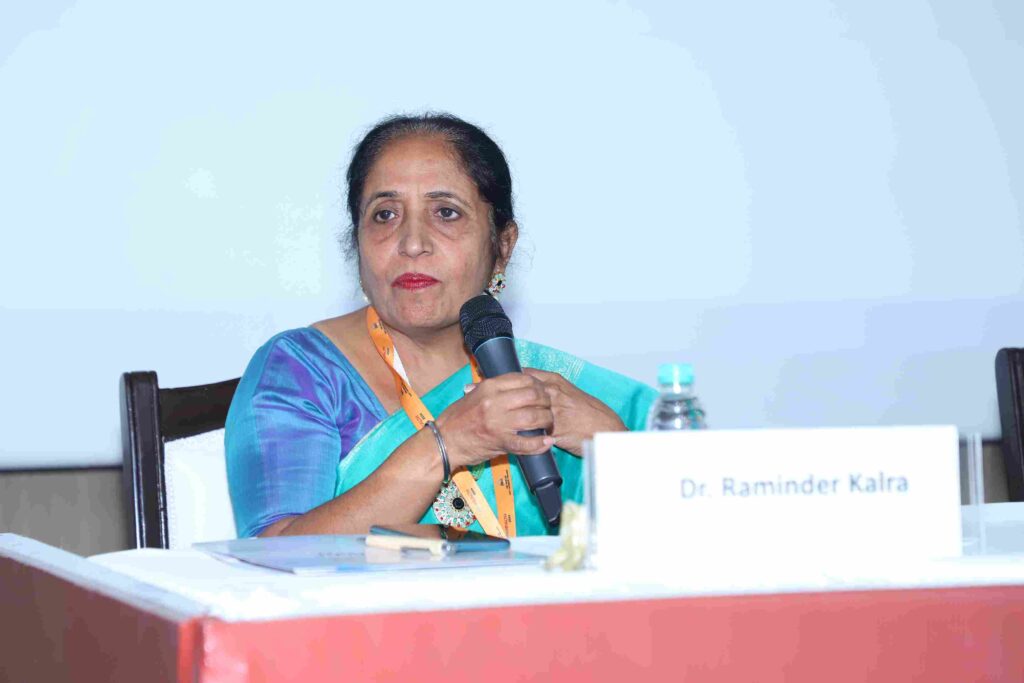
At InnoHEALTH 2024, host Ursina welcomed a distinguished voice in nursing education—Dr. Ramindra Kalra, Principal of Holy Family College of Nursing, and a veteran with 39 years of experience as a nurse educator. As the Founder Principal of the college, Dr. Kalra brought a powerful message to the table: while AI and digital technologies are transforming healthcare, the essence of nursing—compassion and human touch—must remain non-negotiable.
Nursing Curriculum in the Digital Age
Addressing whether nursing education is ready for AI, Dr. Kalra noted that India has already updated its nursing curriculum to include digitization, computer literacy, and even AI-related electives. “The first batch under the new curriculum will graduate in 2025–2026,” she said, adding that while students are becoming increasingly tech-savvy, faculty training is a crucial missing piece.
She also raised a modern challenge: the rise of generative tools like ChatGPT. While acknowledging its utility, Dr. Kalra emphasized the importance of critical thinking and originality, which are at risk if students overly rely on AI for academic assignments.
Hands-On Training Meets Digital Transformation
One of the strengths of India’s nursing education, according to Dr. Kalra, is the early and extensive exposure to clinical practice. Unlike some Western institutions where students begin hospital work only during internships, Indian nursing students are in clinical settings from the very first year. At Holy Family Hospital—a COVID-care facility—students and faculty worked at the patient bedside throughout the pandemic, ensuring that compassion was never lost in crisis.
Dr. Kalra shared that the college is currently co-developing a digital curriculum software that integrates video lectures and interactive modules. Teachers can track student engagement and assign pre-reading, allowing more time for critical discussions and problem-solving in class.

However, she cautioned against letting technology dilute the human aspect of nursing: “No matter how advanced monitors or data systems become, patients still need a nurse’s presence, empathy, and care at the bedside.”
India vs. the West: A Strength in Practical Training
Comparing India’s nursing education system with that of developed countries, Dr. Kalra proudly noted that Indian nurses are often more holistically trained. When students from her college work abroad, they often outperform their counterparts who are trained in narrow specializations.
“In India, we maintain continuity—faculty who teach theory also teach in clinicals,” she explained. “In the West, clinical instruction is often handled by separate preceptors. This separation can weaken the integration between knowledge and practice.”
A Message for the Nursing Community
Dr. Kalra’s message to young nurses and educators was clear: “Put yourself in the patient’s place. That perspective will guide you to be a truly great nurse.” She also stressed the importance of lifelong learning. “Even after nearly four decades in this profession, I still strive to learn every day.”
She concluded with a heartfelt call for greater recognition of nurses. “They’re doing incredible work. What they need most is acknowledgement and continued opportunities for growth.”
Dr. Ramindra Kalra’s insights are a timely reminder that even as technology reshapes healthcare, the soul of nursing lies in compassion, human connection, and the tireless pursuit of excellence.
Composed By
InnoHEALTH magazine digital team
Listen to the full podcast on our YouTube channel: https://www.youtube.com/watch?v=Q584VjTlPUo

